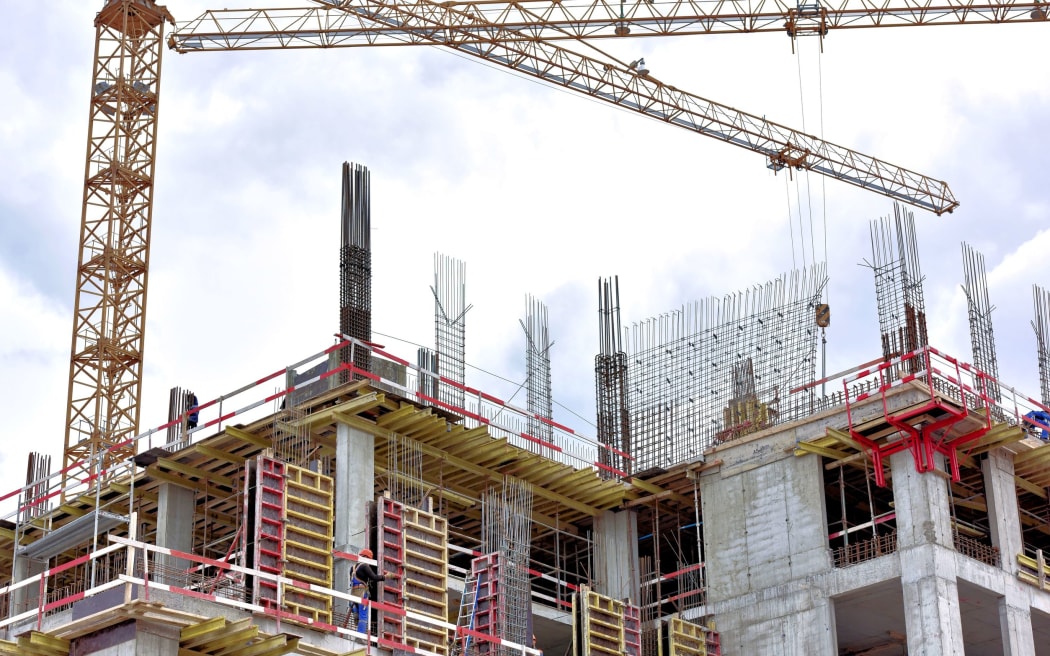Navigation for News Categories
Construction alongwith retail are expected to be the two sectors most affected by the recession.
Photo: 123RF
The economy is probably already in recession and likely to remain so into next year amid rising interest rates and pressured household budgets, according to one economic forecaster.
Consultancy Infometrics has issued a new set of forecasts for the coming year and believes the Reserve Bank’s (RBNZ) aggressive rate rises, the housing slowdown, labour shortages, and supply chain disruptions have already taken a toll on the economy.
“We think the economy is already in recession at the moment. We suspect that the final quarter of 2022 will have shown negative growth, and we’re expecting negative growth to pretty much continue throughout 2023 and early next year as well,” chief forecaster Gareth Kiernan said.
Consultancy Infometrics’ chief forecaster Gareth Kiernan suspects the final quarter of 2022 will have shown negative growth.
Photo: RNZ / Rebekah Parsons-King
He said the contraction may not be too deep, around 1-1.5 percent, but it could not and would not be avoided as the RBNZ lifted the official cash rate to 5.75 percent by the middle of this year, sending mortgage rates to 14 year highs above 7 percent.
“In tandem with other cost-of-living pressures, higher mortgage repayments are starting to reduce spending volumes compared to the last couple of years.”
Kiernan said that would inevitably result in higher unemployment, touching five percent next year.
“Job losses will directly weigh on people’s spending, but increased nervousness about job and income security will lead to more cautious spending behaviour across a broader range of households.”
He said adding to the risks was the uncertain global outlook, notwithstanding the hope that the US might avoid recession and China’s economy will rebound following the ending of Covid-19 restrictions.
“The other probably biggest downside risk we’ve got out there is just the state of the global economy and expected recession in both America and Europe… that flows through and impacts on New Zealand more heavily, particularly in terms of our export sectors.”
The construction and retail sectors were expected to feel the brunt of recession, with house prices seen falling by a total of 22 percent from their peak of two years ago.
Kiernan said it was not all negative with many of the international disruptions such as shipping and global production stabilising.
Nevertheless he said the RBNZ could be expected to keep raising the OCR until it saw real evidence that inflation is under control, even if that meant exacerbating the economic slowdown.















